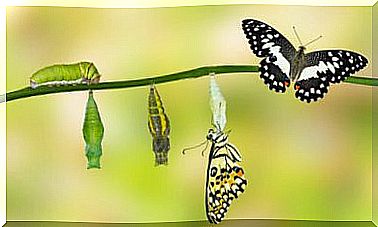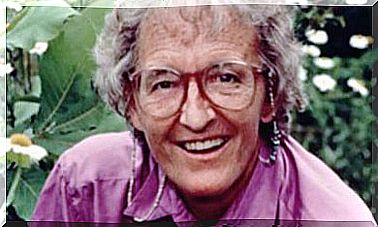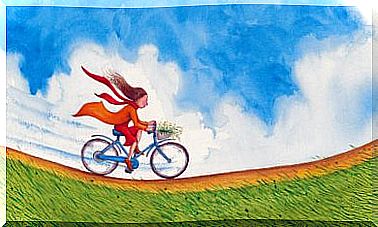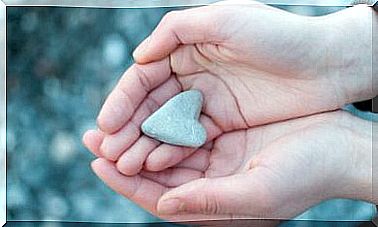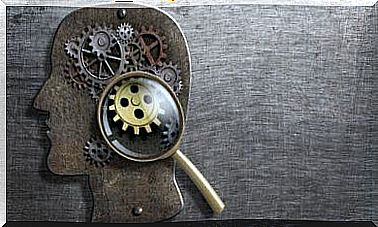Myths And Truths About Marijuana Use
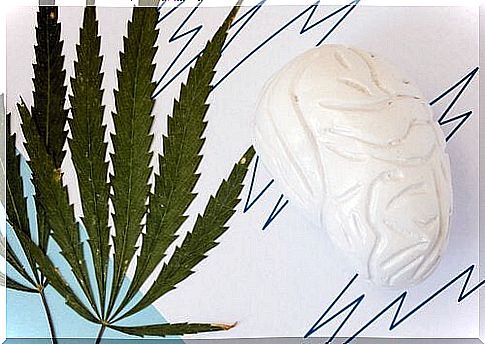
The use of marijuana or cannabis sativa has become even more popular in the last decade. Despite being one of the most consumed drugs, to this day many people have incorrect information about the benefits and possible harms of its use. That is, its use has increased, but the type of information that is known about the effects of marijuana has not been improved. Furthermore, the myths that revolve around it are as numerous as they are dangerous.
Therefore, in this article we will explain the main myths and truths about marijuana use. We’ll look at some of the most common ideas about marijuana use, such as its possible therapeutic effects, whether or not it’s an addictive drug and helps concentration and creativity.
Therapeutic Effects of Marijuana Use, Do They Really Exist?
Marijuana, in general terms, has several types of cannabinoids (marijuana compounds), just over 100. Although the psychoactive effects of marijuana are largely due to the cannabinoid THC, the most powerful medical therapeutic potential is that of the cannabinoid CBD. Marijuana for therapeutic use should be consumed orally and not smoked, as the lung damage caused by smoking may not compensate for the therapeutic effects.
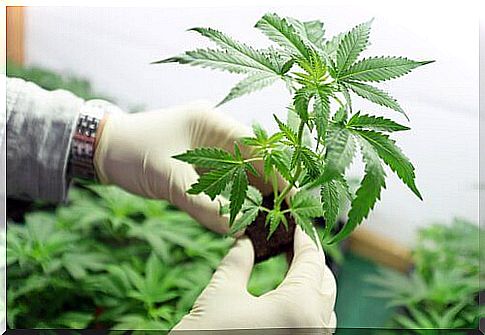
That is, when using marijuana, several types of cannabinoids are ingested; the best known and most sought after by marijuana users is Delta-9-Tetrahydrocannabinol (THC), although the therapeutic effects are obtained from cannabidiol (CBD). This, when it has therapeutic indications, can be consumed only by capsules, oils or solutions containing CBD. It is neither necessary nor healthy to pursue the therapeutic effects of CBD through marijuana use.
CBD itself has been shown, through scientific studies, to have therapeutic benefits. Among the benefits of CBD are: anti-inflammatory, antiemetic, anticonvulsant, anxiolytic and antitumor. All of them are the best known therapeutic effects of CBD, and it is not essential to obtain CBD through marijuana use, as there are special preparations to obtain the therapeutic benefits of this type of cannabinoid.
Does marijuana use generate addiction? Can you become addicted to marijuana?
The answer to these two questions is yes. Marijuana use is addictive, because it is a psychoactive substance that modifies the functioning of brain reinforcement pathways (ventral tegmental area and nucleus accumbens). Even though the cessation of marijuana use does not have a withdrawal syndrome with important signs and physical symptoms, it does not mean that it does not generate dependence. Marijuana itself is an addictive drug.
Likewise, to date, the signs and symptoms that make up the marijuana withdrawal syndrome have been studied and identified. The diagnostic criteria for this withdrawal syndrome, according to the DSM 5 manual, are as follows:
A. Abrupt cessation of marijuana use that has been intense and prolonged (eg, daily or near-daily use, over a period of at least several months).
B. Occurrence of three (or more) of the following signs and symptoms within approximately one week of Criterion A:
- Irritability, anger or aggressiveness.
- Nervousness or anxiety.
- Difficulties sleeping (ie insomnia, nightmares).
- Appetite or weight loss.
- Restlessness.
- Discouragement.
- At least one of the following physical symptoms causing significant discomfort: abdominal pain, spasms and tremors, sweating, fever, chills, or headache.
C. Criterion B signs or symptoms cause significant distress or impairment in the areas of social relationships, work, or other important areas of functioning.
D. The signs or symptoms cannot be attributed to any other medical condition and are not better accounted for by another mental disorder, including intoxication or withdrawal from another substance.
Thus, if a person experiences these symptoms after discontinuing THC consumption, we are facing a case of marijuana withdrawal syndrome, and this is the result of changes in the brain caused by long-term use of this drug. In short, the truth is that marijuana is an addictive drug and, yes, it causes withdrawal. While it’s legal in some countries, that doesn’t mean it’s not addictive.

Marijuana is a natural substance and, therefore, its consumption does not cause significant damage to our body. That’s true?
This is the most widespread myth and the most refuted by scientific research. The main negative consequences of marijuana use are observed in the cognitive functioning of our brain (memory, attention, reasoning) and in the immune system (our body’s defenses). Therefore, we speak of two harmful effects: neuropsychological problems and immune system problems.
Thus, marijuana use causes poorer memory performance, both in the short and long term. It has also been shown that THC, in the long run, causes significant difficulties in retaining new information and concentrating. And all of this is observed when comparing a group of people who use marijuana against another group who do not use it, of the same age, gender, culture and educational level.
Also, at the level of the immune system, the use of marijuana makes this system work less and less efficiently. Technically speaking, THC “depresses” the immune system, which, in the long run, makes us more prone to diseases of all kinds, and especially to autoimmune or carcinogenic diseases. We should also keep in mind that among the effects of marijuana use are often nervousness and anxiety. These two experiences also damage the immune system as they are closely related to our emotional experiences.
Therefore, even if it is a natural substance, it has harmful effects on the body and, furthermore, when consumed by the pulmonary route, when smoking, the negative consequences of combustion and carbon monoxide are obtained. In this case, natural does not equal harmless.
Is there a relationship between marijuana use and greater creativity?
The relationship between marijuana and creativity is complicated to understand. On the one hand, it’s true that inhibiting the frontal lobe – and the social limitations that exist in it – helps us to be more creative. However, to improve creativity there are ways that are much more effective (and less dangerous) than using marijuana. The in-depth study of the artistic area in which we work (painting, photography, cinema, music, etc.), together with exposure to artistic and new stimuli, notably favors creativity.

Marijuana can make you more creative, but only in the short term, only under the effects of THC, and on the other hand, it won’t help in one fundamental aspect if you want creativity to bear fruit: perseverance. Marijuana use can increase creativity, but at the same time, hinder your ability to be constant. Marijuana can provide many new ideas, but in return, it will disrupt the process needed to realize them.
Finally, if a person decides to use marijuana despite the harmful effects, it is very important to consider guidelines for responsible consumption, such as: having accurate information about what is being smoked (type of plant, amount of THC, pesticides, added toxins ), maintain healthy eating habits, exercise, and avoid using marijuana to get to sleep. Remember that an addiction psychologist can help you reduce your consumption and do so responsibly, or you can stop this addictive habit altogether.

